Ever felt those pre-game jitters? You’re not alone. Many athletes struggle with nerves before a big match, which can hurt their performance. It’s a common problem that can make you doubt yourself and lose focus when it matters most.
Think about it: your heart races, your palms get sweaty, and your mind starts to wander. You might even forget all the hard work you’ve put in. This anxiety can lead to mistakes on the field, missed opportunities, and a game that doesn’t reflect your true skills. It’s frustrating and can leave you feeling disappointed in yourself.
But here’s the good news: you can turn those pre-match jitters into a powerful tool for success. By developing strong pre-match rituals, you can set yourself up to perform at your best when it really counts. These rituals aren’t just about superstition; they’re proven techniques that top athletes use to get in the zone and bring their A-game.
In this post, we’ll explore how to create effective pre-match rituals that will boost your confidence, sharpen your focus, and help you consistently perform at your peak. Get ready to transform your pre-game routine and take your performance to the next level168.
Table of Contents
The Power of Preparation
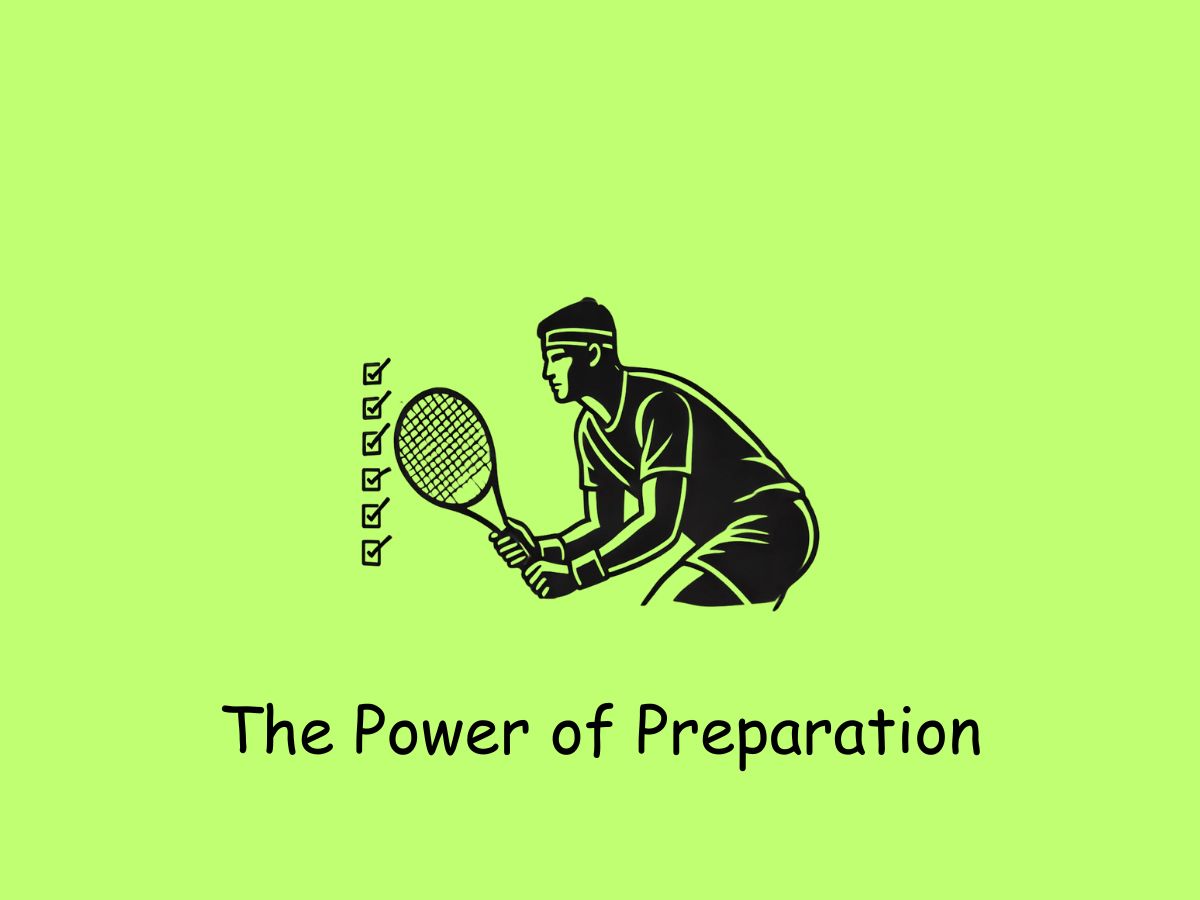
Pre-match rituals are more than just superstitions. They’re powerful tools that can set you up for success on game day. These rituals help you get into the right mindset, boost your confidence, and prepare your body for peak performance1. By following a consistent routine, you create a sense of control and familiarity, which can help calm those pre-game jitters2.
Effective preparation starts well before the match. It involves both mental and physical components that work together to get you ready7. This might include visualizing success, going through your equipment checklist, or practicing specific skills. The key is to find what works best for you and stick to it4.
Remember, preparation is all about consistency. By repeating your pre-match routine, you’re training your brain to associate these actions with being ready to perform. This can help you feel more confident and focused when it’s time to compete10. So take the time to develop a ritual that feels right for you – it could make all the difference in your performance.
Mental Techniques to Boost Confidence
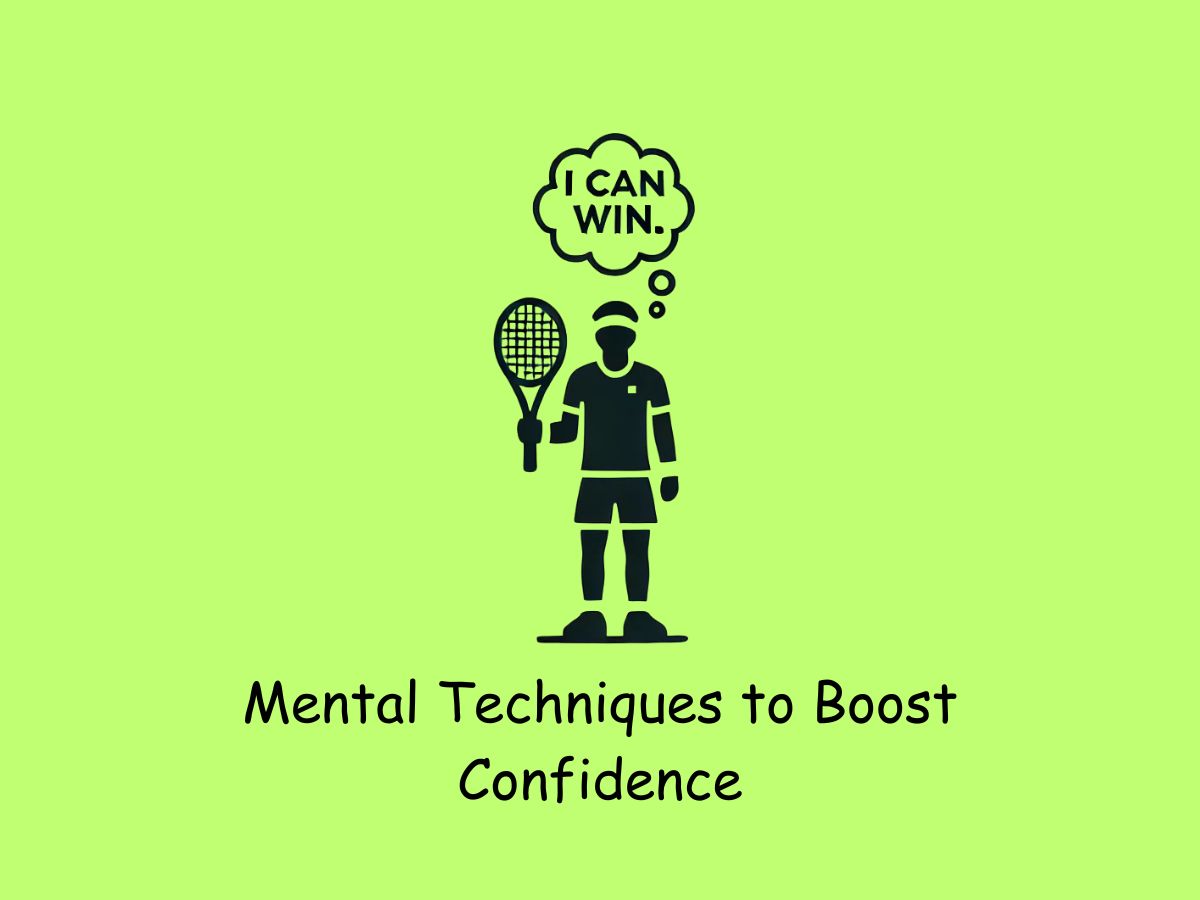
Your mind is a powerful tool, and learning how to use it effectively can give you a real edge in competition. One of the most effective mental techniques is visualization. By creating vivid mental images of success, you can build confidence and reduce anxiety before a game2. It’s like giving your brain a practice run, making the actual event feel more familiar and less intimidating.
Positive self-talk is another key strategy. Create a pre-game mantra or a short, empowering phrase you can repeat to yourself2. This helps to counter any negative thoughts that might creep in. When you catch yourself thinking “What if I mess up?”, quickly replace it with something like “I’ve trained hard for this. I’m ready.”2
Don’t forget the power of gratitude and focusing on past successes. Before the game, take a moment to list things you’re grateful for. This shifts your focus to the positives rather than dwelling on fears or doubts. Also, remind yourself of times when you’ve performed well in the past. Reliving these moments reinforces the belief that you’re capable of succeeding again2.
Physical Warm-Ups That Work Wonders
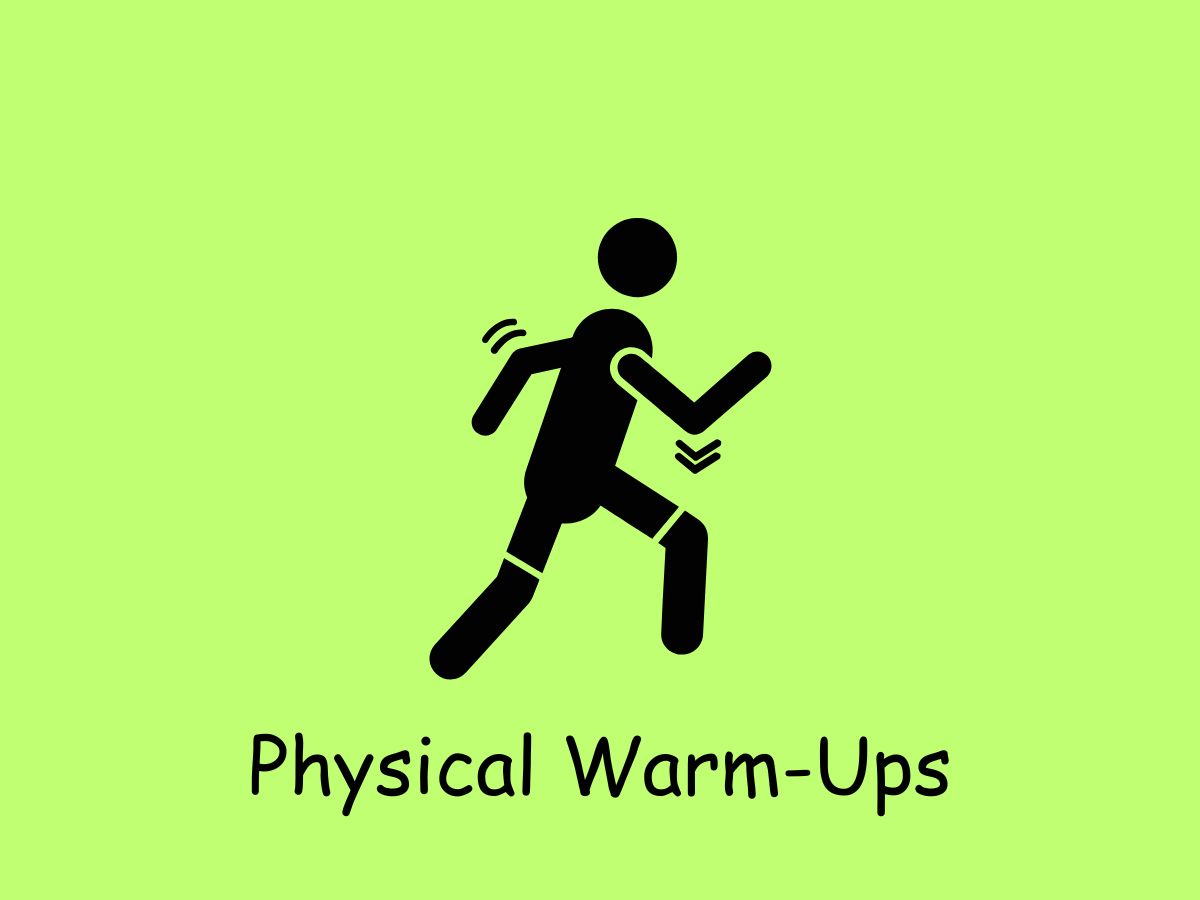
A good physical warm-up is crucial for getting your body ready for action. It’s not just about preventing injuries – though that’s important too. A proper warm-up can actually improve your performance6. It raises your body temperature, increases blood flow to your muscles, and gets your heart pumping611.
Start with some light cardio to get your blood flowing. This could be a quick jog, some jumping jacks, or even a brisk walk9. Then, move on to dynamic stretches. These are active movements that mimic the actions you’ll be doing in your sport6. They help improve your range of motion and prepare your muscles for the demands of the game.
Don’t forget to include some sport-specific drills in your warm-up. These could be things like dribbling for basketball players or passing drills for soccer players4. These exercises not only warm up your body but also help sharpen your skills and focus your mind on your tennis success. Remember, a good warm-up should leave you feeling energized and ready to perform, not tired out11.
Personalizing Your Pre-Game Routine
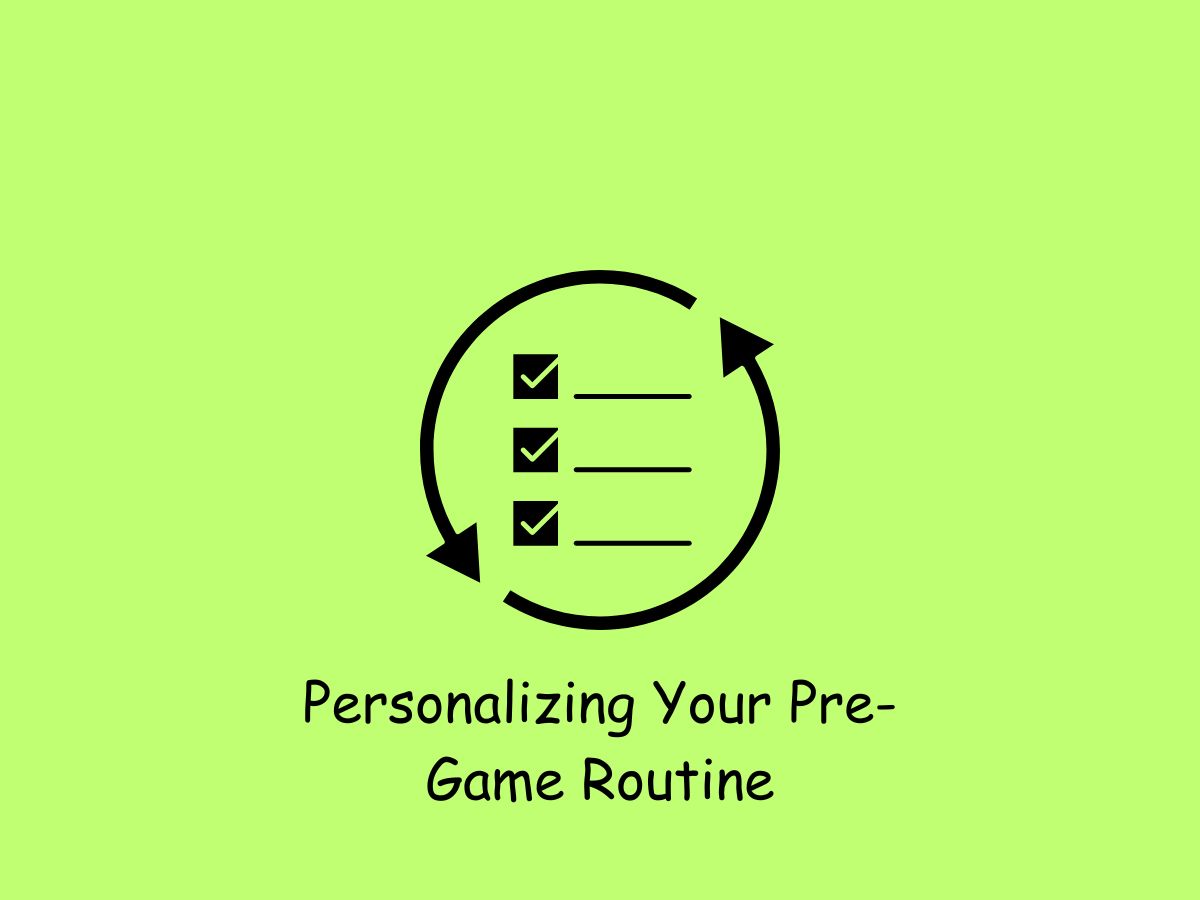
Your pre-game routine should be as unique as you are. What works for one athlete might not work for another, so it’s important to find what feels right for you. Start by thinking about what helps you feel most prepared and confident. This could be a specific warm-up, listening to a motivational playlist, or taking a moment for quiet visualization9.
Experiment with different elements to create a routine that covers both your physical and mental needs. You might include some light cardio to get your blood flowing, followed by dynamic stretches to prepare your muscles. Don’t forget about mental preparation too – this could involve positive self-talk or reviewing your game strategy5.
Remember, your routine should be flexible enough to adapt to different situations. You might need to adjust it based on the importance of the game or the available time before the match. The key is to find a balance that works for you and stick to it consistently. This will help you feel more in control and ready to perform at your best when it matters most1.
Team Rituals: Building Unity and Energy
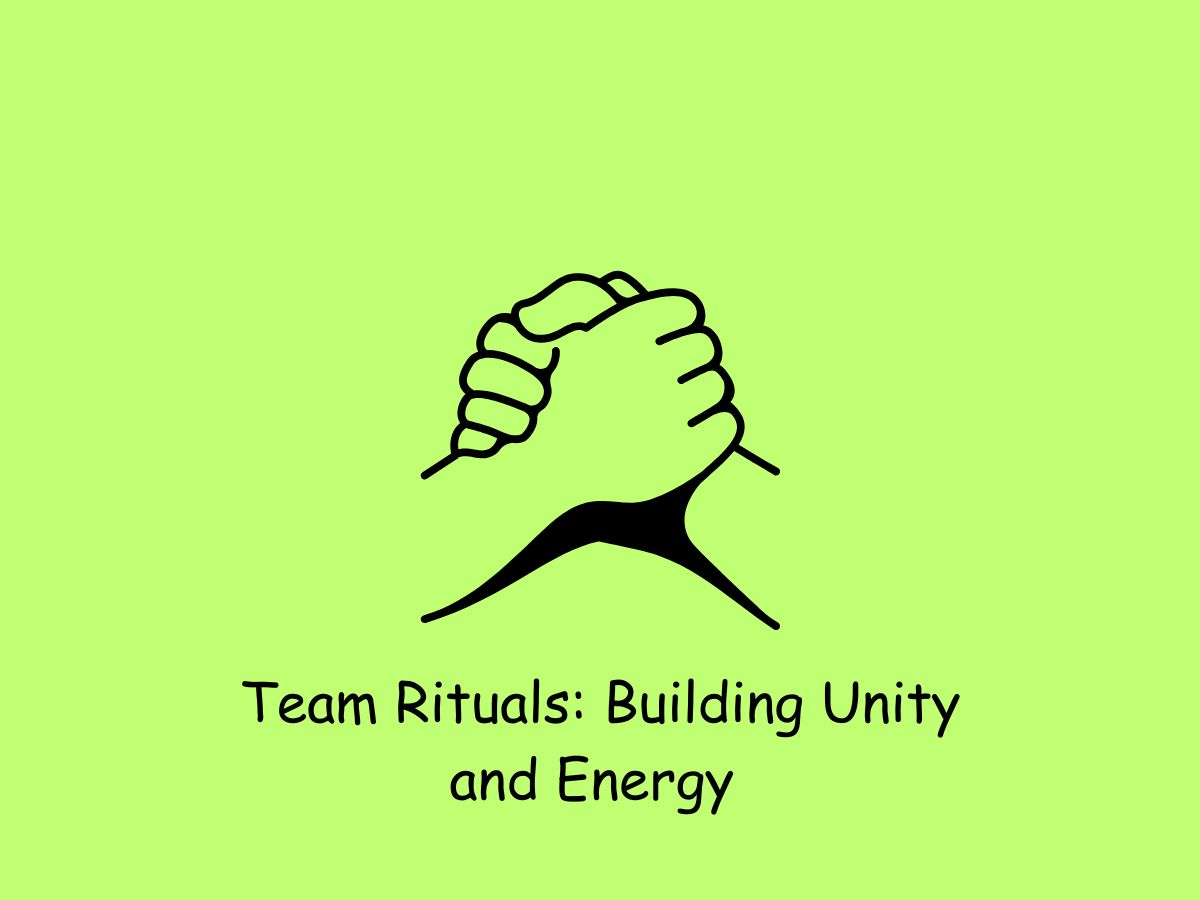
Team rituals are powerful tools for creating a strong bond among players. These shared activities, like pre-game huddles or goal celebrations, help build a sense of belonging and reinforce a winning mindset. When teams perform rituals together, it creates a shared experience that can boost motivation and trust between teammates2.
Some teams have unique rituals that have become part of their identity. For example, the New Zealand rugby team is known for performing the Haka, a traditional Maori war dance, before their matches. This ritual not only intimidates opponents but also strengthens the team’s unity and cultural pride8. Other common team rituals include holding hands when entering the field, shouting motivational words in a circle, or having special handshakes between players2.
These rituals do more than just pump up the team – they can actually improve performance. When players feel connected to their teammates and part of something bigger than themselves, they’re more likely to give their all on the field. Team rituals also help create a consistent pre-game environment, which can reduce anxiety and help players focus on the task at hand4.
Nutrition and Hydration: Fueling for Success

What you eat and drink before a game can make a big difference in how you perform. Your body needs the right fuel to work at its best, so paying attention to nutrition and hydration is crucial. Start by eating a balanced meal a few hours before the game. This should include carbohydrates for energy, some protein, and a bit of healthy fat5.
Don’t forget about staying hydrated. Drink plenty of water throughout the day leading up to your match. If you’re playing a long game or in hot weather, you might also need sports drinks to replace electrolytes lost through sweat. Avoid trying new foods or drinks right before a game – stick to what you know works for your body5.
Remember, everyone’s nutritional needs are different. What works for your teammate might not be the best choice for you. Pay attention to how different foods make you feel and adjust your pre-game meal accordingly. If you’re not sure what’s best, consider talking to a sports nutritionist who can help you create a personalized fueling plan for success5.
Time Management: When to Start Your Ritual
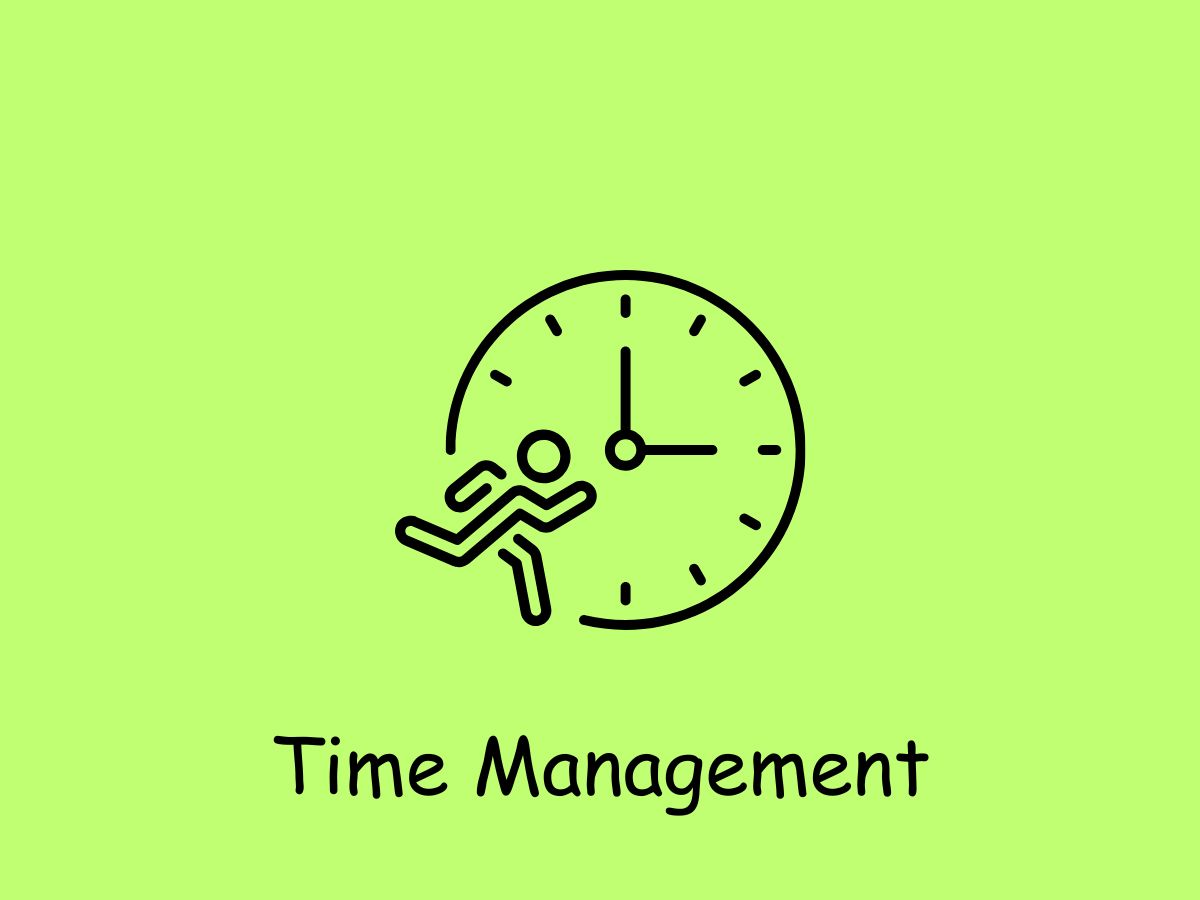
Timing is crucial when it comes to pre-match rituals. Starting your routine early gives you ample time to prepare both physically and mentally without feeling rushed1. This helps you feel more in control and reduces last-minute anxiety. A good rule of thumb is to arrive at least an hour before the competition9. This gives you enough time to settle in, assess the environment, and go through your routine at a comfortable pace.
Your pre-match routine doesn’t have to start just before the game. In fact, it can begin the night before or even earlier. Some athletes find it helpful to watch highlights of their successful performances on the morning of game day8. Others might have specific meals or activities they do the evening before. The key is to find what works for you and stick to it consistently.
Remember, your routine should be flexible enough to adapt to different situations. You might need to adjust it based on the importance of the game or the available time before the match3. The goal is to create a sense of familiarity and control, no matter where you’re playing or how big the event is. By managing your time well and starting your ritual early, you set yourself up for a calm and focused mindset when it’s time to perform.
Dealing with Pre-Match Nerves
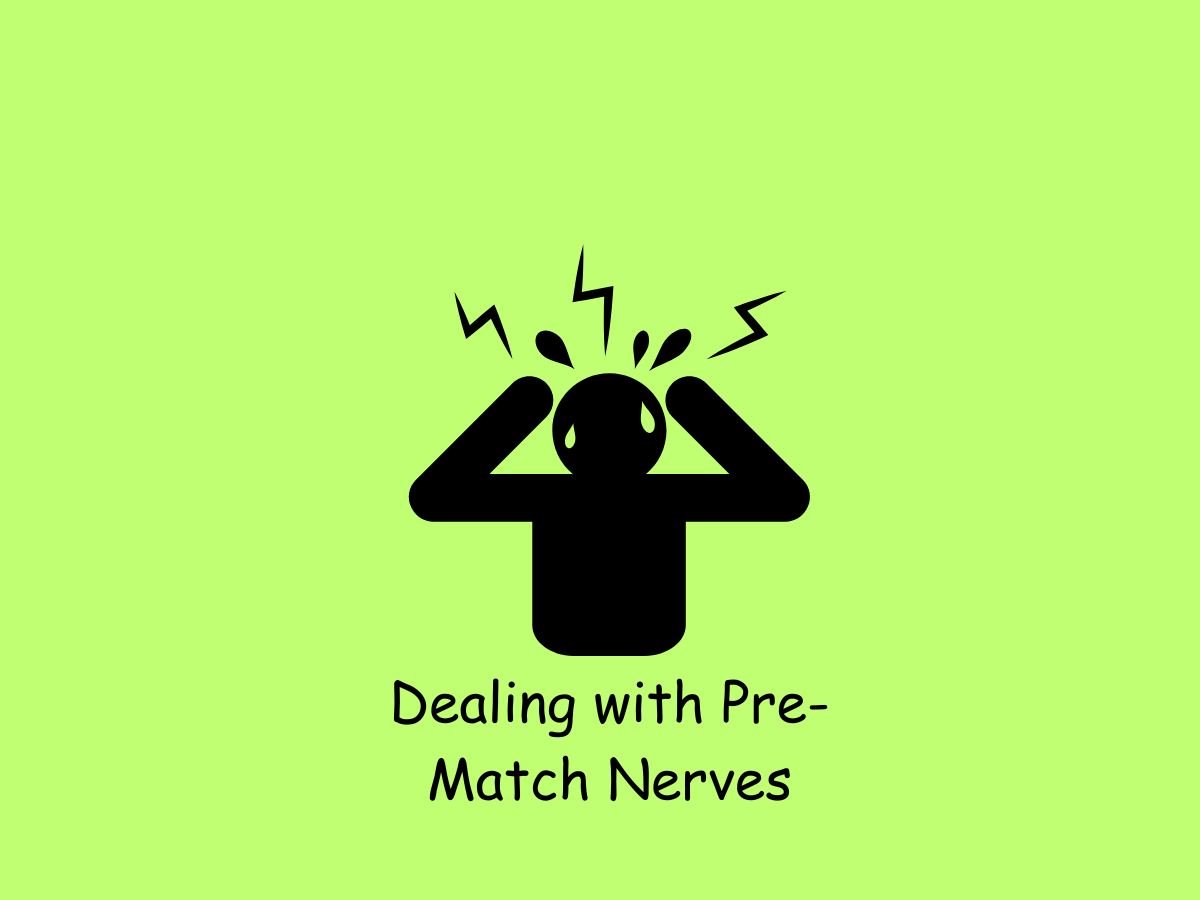
Pre-match nerves are a common experience for athletes at all levels. The good news is that these nerves can actually be helpful when managed properly. They’re part of your body’s way of preparing you to perform at your best10. The key is learning how to channel this nervous energy into focus and determination rather than letting it overwhelm you.
One effective way to calm nerves is through breathing exercises. Deep, slow breaths can help slow down your heart rate and reduce anxiety. Try inhaling through your nose for a count of four, then exhaling through your mouth for another count of four5. This simple technique can help you feel more centered and in control. Visualization is another powerful tool. Spend some time each day leading up to the match imagining yourself performing well. Picture the venue, the sounds, and how it feels to execute your skills perfectly5.
It’s also important to reframe how you think about your nerves. Instead of seeing them as a sign that something’s wrong, view them as a sign that your body is getting ready to perform. Remind yourself that you’ve prepared well and are ready to face the challenge. If negative thoughts creep in, counter them with positive self-talk. Phrases like “I’ve trained hard for this” or “I’m ready to do my best” can help boost your confidence2. Remember, feeling some nerves is normal – it’s how you manage them that makes the difference.
Consistency is Key: Sticking to Your Routine
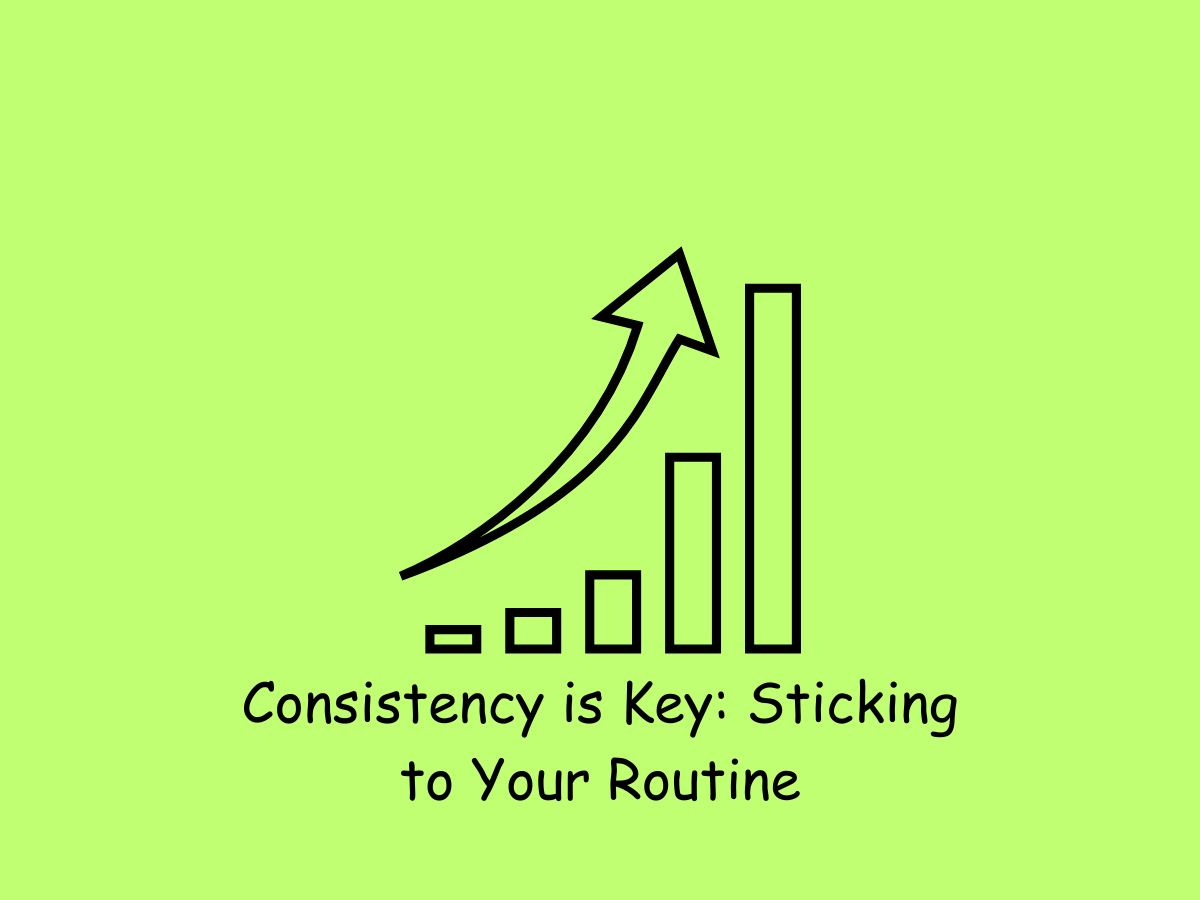
Consistency in your pre-match routine is crucial for peak performance. When you follow the same routine consistently, it becomes a powerful psychological anchor11. This familiarity helps you feel more in control and confident, even in high-pressure situations. Your brain starts to associate these actions with being ready to perform, which can automatically put you in the right mindset for success.
Developing a consistent routine takes time and practice. Start by identifying the elements that help you feel most prepared and confident. This could include specific warm-up exercises, mental preparation techniques, or even small personal rituals. Once you’ve established your routine, practice it not just before games, but before training sessions too11. This repetition helps solidify the routine in your mind and body.
Remember, the goal isn’t to create a rigid set of superstitions. Instead, your routine should be a flexible framework that you can adapt to different situations while still maintaining its core elements. As you stick to your routine over time, you’ll likely find that it becomes second nature. This consistency can help you perform more reliably under pressure, giving you a significant mental edge in competition3. So, commit to your routine, practice it regularly, and trust in the process – consistency really is key to unlocking your best performance.
Conclusion
You now have the tools to transform your pre-game routine. Don’t let nerves hold you back anymore! Start putting these strategies into action and see how they can elevate your performance. Remember, it’s about finding what works uniquely for you, so be patient as you create your routine.
Get out there and apply what you’ve learned! By taking small steps and staying committed, you can achieve remarkable results. Remember that refining your rituals takes time, so keep exploring and adjusting things until you find your perfect approach.
If you need additional information or have further questions, don’t hesitate to reach out. You can send me an email at jaiden@jaidensmedia.com, and I’ll gladly assist you on your journey to success.
FAQs
What is a pre-match ritual?
A pre-match ritual is a routine that athletes follow before a game to prepare their mental thoughness and physically be ready. It helps boost confidence and reduce anxiety.
Why are pre-match rituals important?
They create a sense of control, reduce nerves, and help you focus. Consistent rituals train your brain to associate certain actions with being ready to perform.
How early should I start my pre-match routine?
Arriving at least an hour before the game is recommended. This gives you enough time to settle in and go through your routine without feeling rushed.
What should I include in my pre-match routine?
Include a mix of physical and mental preparation. This could involve warm-ups, visualization, positive self-talk, and nutritional preparation.
How can I calm my nerves before a game?
Use breathing exercises, visualization techniques, and positive self-talk. Reframe your nerves as excitement and remind yourself of your training.
Can team rituals really improve performance?
Yes! Team rituals create unity, boost motivation, and reduce anxiety. They foster a sense of belonging and help players focus.
How important is nutrition before a game?
Very important. Eat a balanced meal a few hours before the game and stay hydrated. Avoid trying new foods right before a game.
What if my routine doesn’t work every time?
It’s okay! Routines are not magic. If something doesn’t work, adjust your routine, but stick to the core elements.
How do I create a personal pre-game routine?
Experiment with different elements to find what works best for you. Start with a basic routine and adjust it based on your experiences.
Is it okay to change my routine?
Yes, routines can be flexible. Adapt them based on the situation, but try to maintain the core elements that help you feel prepared and confident.
